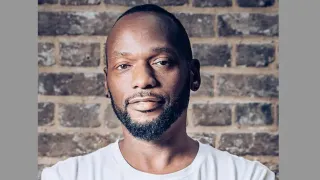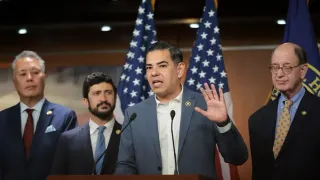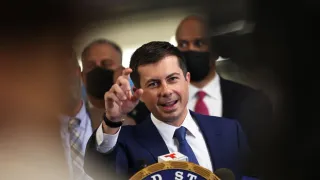
Aug 11
Russell T Davies Warns Queer Community Amid Political Shift: “They’re Out to Get Us”
READ TIME: 3 MIN.
Russell T Davies, the writer behind Doctor Who, Queer as Folk, and It’s a Sin, has issued a stark warning that LGBTQ+ rights are “rapidly and urgently getting worse,” urging the community to remain vigilant as right-wing political movements gain ground in the UK and abroad. His comments, published on August 11, reference the rise of Reform UK and echo broader concerns about escalating anti-LGBTQ+ rhetoric and policy threats.
In remarks highlighted by LGBTQ+ outlets, Davies argued that the community should be “revolting in terror” at current political trends, a phrasing that captured widespread attention and sparked debate about how best to mobilize in response. Coverage noted his view that political figures and movements aligned with far-right agendas are targeting LGBTQ+ people, intensifying the need for solidarity and action.
Davies linked the UK’s climate to a broader international picture, pointing to the influence of far-right politics and leaders beyond the UK. Regional media reports summarized his concern that the normalization of anti-LGBTQ+ discourse abroad can embolden domestic rollbacks, making cross-border vigilance essential.
His warning arrives as LGBTQ+ advocates emphasize that progress achieved over recent decades is not guaranteed. In the UK, public debate around trans rights, conversion practices, and inclusive education has intensified, with campaigners cautioning that policy backsliding often begins with stigmatizing rhetoric directed at transgender people and then expands to broader LGBTQ+ protections. Davies’s comments center on these cascading risks, encouraging communities to recognize how shifts in tone can foreshadow legislative change.
Media coverage tied his intervention to the 10th anniversary of Cucumber, using the milestone to reflect on how expectations for equality in 2025 differ from the optimism of earlier decades. In press accounts, Davies contrasted the hope that followed landmark cultural breakthroughs like Queer as Folk with today’s more precarious environment, saying current realities demand renewed engagement from LGBTQ+ people and allies.
Community organizers and cultural figures often play an outsized role in setting the tone for civic engagement, and Davies’s platform gives his words additional reach. Coverage from UK LGBTQ+ media emphasized how high-profile voices can help catalyze grassroots responses, from voter registration drives to support for legal defense funds and mental health services for LGBTQ+ people facing targeted harassment. Davies’s framing—urgent yet focused on collective action—fits within this broader strategy.
Some reports summarized his references to global political figures as part of the context for UK developments, underscoring the interconnection between domestic discourse and international trends. By situating the UK’s situation within a worldwide shift, Davies suggests that resisting rollbacks requires both local organizing and awareness of transnational dynamics that can influence policy and public sentiment.
Advocates note that practical steps—such as verifying candidates’ records on LGBTQ+ equality, supporting organizations that provide legal and social services to transgender people and the broader community, and reporting hate incidents—can help counteract the climate Davies describes. Media reports summarizing his comments highlight the necessity of sustained engagement rather than episodic reactions, especially as electoral cycles and media narratives can accelerate shifts that affect policy outcomes.
Davies’s message also recognizes the emotional toll that prolonged vigilance can take. Coverage emphasized that while fear can be a mobilizer, sustainable movements rely on networks of care, cultural affirmation, and storytelling that keep communities connected. The cultural legacy of shows like It’s a Sin and Queer as Folk continues to offer representation and solidarity—reminders that visibility and public support remain vital bulwarks against marginalization.
Footage and social posts amplified the “revolting in terror” phrasing as a rallying cry, sparking discussion about constructive responses and the lines between alarm and action. Clips shared by LGBTQ+ media accounts broadened the reach of his comments beyond traditional outlets, a sign of how digital platforms continue to shape the tempo and tenor of LGBTQ+ news cycles.
As the UK navigates a heated political landscape, Davies’s warning underscores a central point: rights can erode quickly without sustained advocacy. The call to organize—through voting, coalition-building, and support for inclusive policy—reflects a long-standing lesson of LGBTQ+ movements. The attention generated by his remarks suggests that, for many, the message resonates as both a caution and a catalyst.






